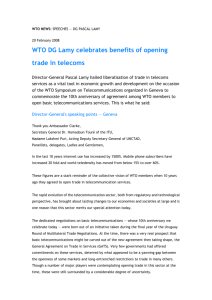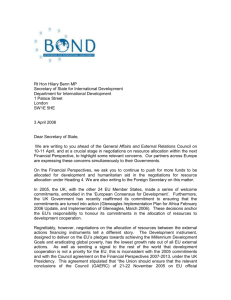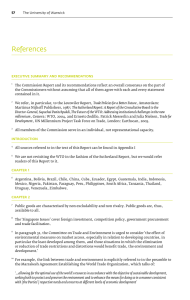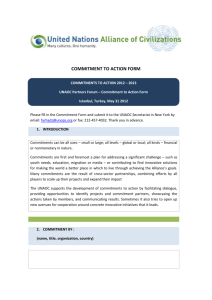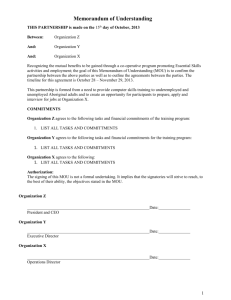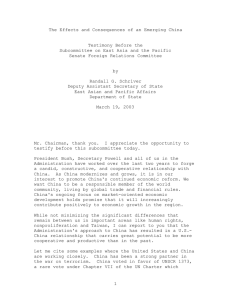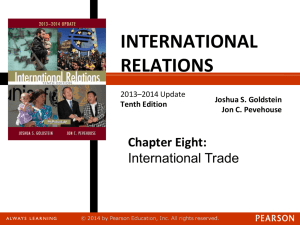Recommendations for WTO Multilateral Trade Negotiations
advertisement
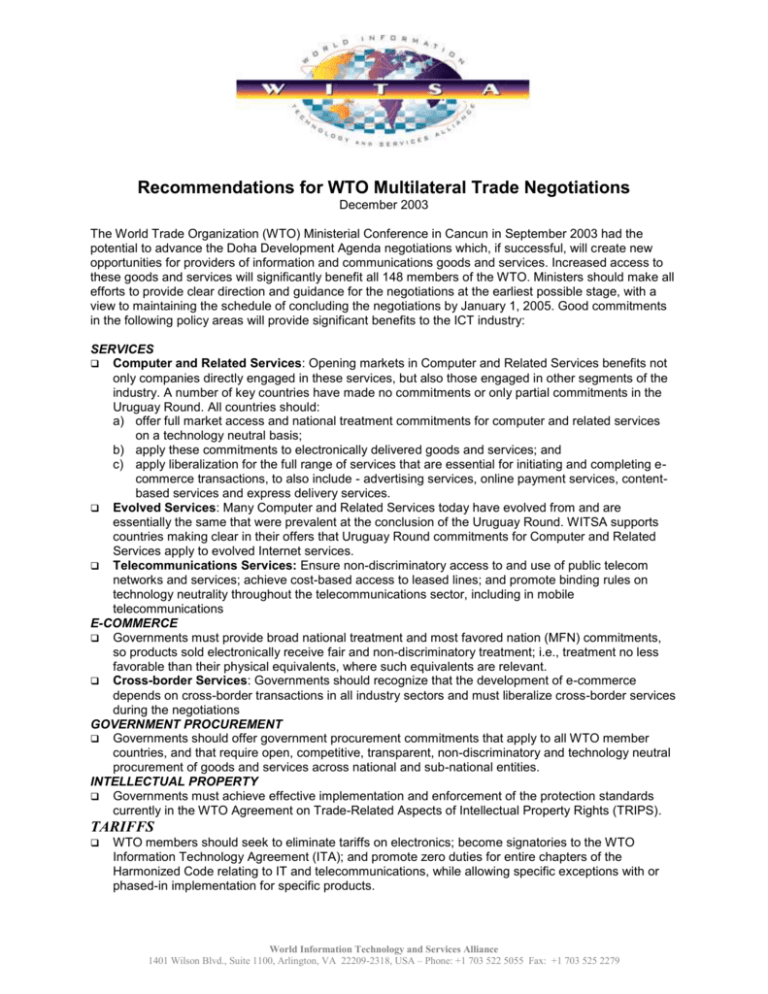
Recommendations for WTO Multilateral Trade Negotiations December 2003 The World Trade Organization (WTO) Ministerial Conference in Cancun in September 2003 had the potential to advance the Doha Development Agenda negotiations which, if successful, will create new opportunities for providers of information and communications goods and services. Increased access to these goods and services will significantly benefit all 148 members of the WTO. Ministers should make all efforts to provide clear direction and guidance for the negotiations at the earliest possible stage, with a view to maintaining the schedule of concluding the negotiations by January 1, 2005. Good commitments in the following policy areas will provide significant benefits to the ICT industry: SERVICES Computer and Related Services: Opening markets in Computer and Related Services benefits not only companies directly engaged in these services, but also those engaged in other segments of the industry. A number of key countries have made no commitments or only partial commitments in the Uruguay Round. All countries should: a) offer full market access and national treatment commitments for computer and related services on a technology neutral basis; b) apply these commitments to electronically delivered goods and services; and c) apply liberalization for the full range of services that are essential for initiating and completing ecommerce transactions, to also include - advertising services, online payment services, contentbased services and express delivery services. Evolved Services: Many Computer and Related Services today have evolved from and are essentially the same that were prevalent at the conclusion of the Uruguay Round. WITSA supports countries making clear in their offers that Uruguay Round commitments for Computer and Related Services apply to evolved Internet services. Telecommunications Services: Ensure non-discriminatory access to and use of public telecom networks and services; achieve cost-based access to leased lines; and promote binding rules on technology neutrality throughout the telecommunications sector, including in mobile telecommunications E-COMMERCE Governments must provide broad national treatment and most favored nation (MFN) commitments, so products sold electronically receive fair and non-discriminatory treatment; i.e., treatment no less favorable than their physical equivalents, where such equivalents are relevant. Cross-border Services: Governments should recognize that the development of e-commerce depends on cross-border transactions in all industry sectors and must liberalize cross-border services during the negotiations GOVERNMENT PROCUREMENT Governments should offer government procurement commitments that apply to all WTO member countries, and that require open, competitive, transparent, non-discriminatory and technology neutral procurement of goods and services across national and sub-national entities. INTELLECTUAL PROPERTY Governments must achieve effective implementation and enforcement of the protection standards currently in the WTO Agreement on Trade-Related Aspects of Intellectual Property Rights (TRIPS). TARIFFS WTO members should seek to eliminate tariffs on electronics; become signatories to the WTO Information Technology Agreement (ITA); and promote zero duties for entire chapters of the Harmonized Code relating to IT and telecommunications, while allowing specific exceptions with or phased-in implementation for specific products. World Information Technology and Services Alliance 1401 Wilson Blvd., Suite 1100, Arlington, VA 22209-2318, USA – Phone: +1 703 522 5055 Fax: +1 703 525 2279
